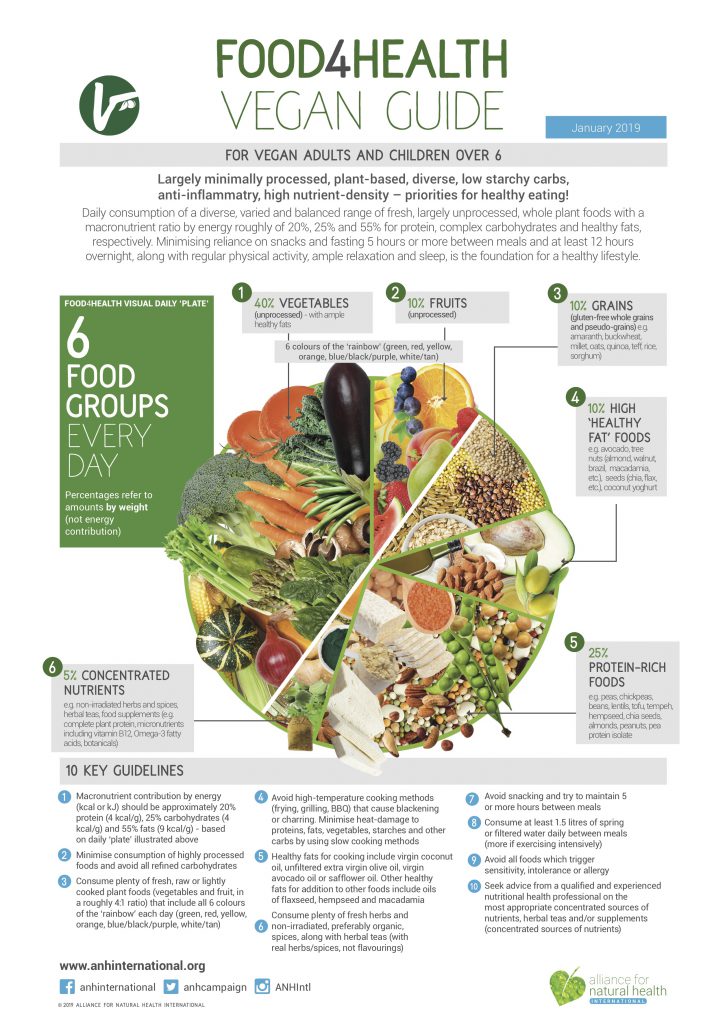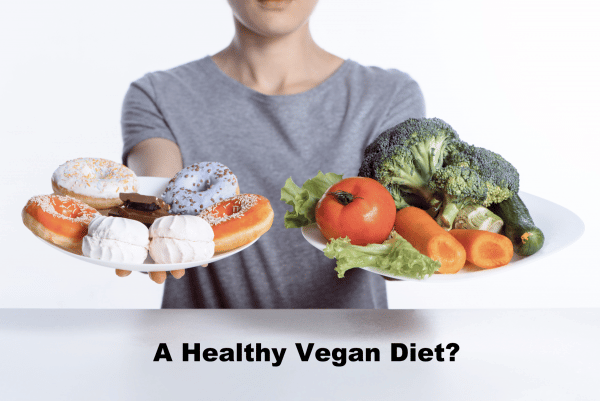With the launch of Veganuary in 2014, and the huge uptake in adopting a vegan diet, especially amongst the younger generation, many more people are avoiding animal foods in their diets.
Whether the reasons are ethical, environmental or health related, eating more plant based foods is a no-brainer. But I do worry that many vegans don’t have all the information they need to make sure they are getting the nutrients they need.
So if you're eating a vegan or plant based diet, here are my top tips to make it as healthy as possible.
You can watch the video below or listen to the podcast;
Top Tips for a healthy vegan diet
- Avoid ultra processed foods – the food industry has jumped on the vegan bandwagon and is busy producing lots of ‘vegan’ friendly processed foods laden with chemicals, additives, vegetable oils, salt and sugar. Watch out for those fake meats, cheeses and ‘healthy' veggie crisps cooked in vegetable oils.
- Don't overload the carbs – going without animal foods can make you favour the carbs which we know pushes up your insulin (contributing to fat storing, mood swings, fatigue, and more oestrogen). Just because chips and bread are vegan does NOT mean they are healthy! Focus on the good carbs like fruit & veg, brown rice, quinoa, buckwheat, whole grains and legumes.
- Take it easy on the soy – soy is often the go to alternative source of protein in a vegan diet. And I do recommend it for its phytoestrogens for menopausal symptoms. However you need to avoid the genetically modified or heavily processed forms – opt for unsweetened and unprocessed soy as much as possible, including miso, tempeh, organic soy milk & yoghurt, and organic tofu. And vary your protein with other sources such as quinoa, buckwheat, chick peas, beans and lentils.
- Supplement your diet – there’s no getting away from it, a vegan diet doesn’t supply all your nutrients. Those most at risk are:
- Vitamin A – there are 2 forms of Vitamin A. Retinol from animal foods and beta-carotene from plant foods. Beta carotene needs to be converted by the body into Retinol, the active form. And this conversion can be poor. You may need to supplement.
- Vitamin B12 – some plant based foods contain Vitamin B12 (marmite, nutritional yeast, fortified breakfast cereals and fortified plant-based milks) however these are not likely to give you enough, so supplementation is recommended.
- Vitamin D – while most Vitamin D comes from sunshine exposure, the only dietary source of Vitamin D3 is from animal foods. Whether vegan or not, we all need to supplement through the winter if we are not exposed to sunshine.
- Iodine – the only plant source of iodine is seaweed, which is not only unlikely to be in your average diet, but it can also provide too much iodine. Much safer to supplement the right amount.
- Iron – plant based iron is much harder for the body to absorb than animal based iron. Vegetarians need to consume 1.8 times more iron than omnivores, as plant-based sources of iron are non-haem. This is even more for vegans, and especially if you're menstruating. You may well need to supplement.
- Omega-3 Essential Fats – EPA and DHA are the forms of Omega 3 fats that the body needs. Plant sources of omega 3 are actually ALA, which then needs converting to EPA and DHA. Conversion rates are poor particularly to DHA, the fat that the brain needs to stay healthy.
- Protein – you can get protein from many plant foods, but different sources contain different amino acids so you need a variety to get a complete protein source. Plant foods that include all 9 essential amino acids include soy beans, quinoa and buckwheat.
- Zinc – vegans are more likely to be deficient in zinc, a vital mineral for your immunity, digestion, hormones and much more! Plant foods that are rich in zinc such as legumes, whole grains, nuts and seeds, are also high in phytic acid, which can impair zinc absorption.
Check out my collection for good supplement brands to consider, including the Better You Vegan Health Spray (providing B12, Vitamin D3, iron, iodine), a good multivitamin, EPA/DHA fish oil and more.
- DON'T follow the NHS ‘Eat Well' advice – ‘For a healthy vegan diet: base meals on potatoes, bread, rice, pasta or other starchy carbohydrates.' No wonder we have a Diabetes epidemic!
Follow the Food4Health Vegan guide instead. Click here to download this guide.

And lastly, if you don’t feel your best on a vegan diet, please consider going back on to animal foods. I’ve had many clients who have tried it but felt worse on it. It’s often a sign that your body needs more than a vegan diet can offer.
Like I said, I’m all for choice, but INFORMED choice, and not at the expense of your health.
Let me know if you need any help with your diet or health.

